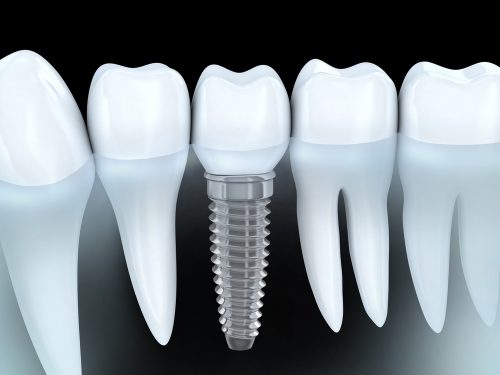Dental implants are the most durable restorative dental option available and can last a lifetime with proper oral hygiene. However, the process of placing the implant involves a minor surgery that requires local anesthesia for a comfortable experience. In order to have a smooth experience with dental implant surgery in Spokane valley, it’s important to know what to expect when undergoing local anesthesia.
How Dental Implants are Pla ced
ced
An oral surgeon is trained and qualified to place dental implants. The dental implant procedure involves three stages: surgical placement, installing the abutment, and attaching the crown. The entire process can take up to several months. This will depend on the patient’s response and how quickly the implants fuse with the jawbone.
The first step is to place a metal post into the jawbone. It will act as an anchor for the new replacement tooth. To do this, the surgeon numbs the gum area with an injection of local anesthesia. This injection helps make the implantation process more comfortable for the patient.
After a few months of healing, during which the implant bonds with the jawbone, your surgeon will proceed with attaching the abutment. This will act as a connector between the implant and the crown. Adding the abutment may or may not require another injection of local anesthesia.
Finally, the crown is attached to the abutment as the replacement tooth. In some instances, a patient requires more than one implant for a bridge or denture. The process is similar for each additional implant, including using local anesthesia to ensure the patient’s comfort.
Local Anesthesia for Dental Implants
The use of local anesthesia is important during the dental implant process. It helps to numb the area, so the patient does not feel pain or discomfort. Your anesthesiologist or surgeon will administer it via a small needle that injects medication directly into the gums. When numb, it makes it easier for the oral surgeon to place the implant without any pain for the patient.
It is important to note that under local anesthesia, the patient will stay awake and alert throughout the entire process. Some patients may experience a slight gagging sensation when the needle is inserted, but this is usually only a minor discomfort.
The local anesthetic typically wears off within a few hours of the procedure, allowing some normal sensitivity to return. However, a patient may experience some numbness or tingling for up to 24 hours after the implantation procedure. It is important to pay attention to any lingering effects of the anesthesia, as it could indicate an allergic reaction or other complication.
Are There Side Effects to Local Anesthesia?

The most common side effects associated with local anesthesia are minimal and typically short-lived. These usually include slight swelling, bruising, or soreness around the injection site. These should resolve within a few days and over-the-counter pain relievers can help manage the pain.
In some cases, patients may experience an allergic reaction to the anesthesia. This could include hives, throat tightness, or difficulty breathing. If any of these symptoms arise after administering local anesthesia, the patient should seek immediate medical attention.
In general, local anesthesia is a safe and effective way to make the dental implant process more comfortable for the patient. With proper care and attention to any lingering side effects, dental implants can be a great way to replace missing teeth and restore a patient’s smile.
Are There Alternatives to Local Anesthesia?
In the majority of cases, a dental surgeon will only use local anesthesia to numb the area of surgery. In some cases, however, the surgeon may opt to use another form of anesthesia.
For instance, when there is extensive bone grafting involved, the dentist may use intravenous sedation or general anesthesia. This form of anesthesia involves putting the patient to sleep and using an IV to administer medication. Surgeons usually recommend this for more complex cases, as it carries a higher risk of side effects than local anesthesia.
Patients with severe dental anxiety or fear of needles may also receive a sedative prior to their procedure. This can help to reduce the patient’s anxiety and help them relax during the dental implant process.
Regardless of the type of anesthesia, it is essential that all patients undergo careful monitoring during the procedure and post-operatively to ensure their safety and well-being. A trusted and experienced dentist in Spokane Valley can help to ensure that all necessary precautions are taken.
Dental Implants in North Spokane & Spokane Valley

If you want to know if dental implants are for you, contact us today to schedule a consultation. Our experienced oral surgeons can help make the process as comfortable and safe as possible. From local anesthesia to sedation, we can find the best option for your individual needs.
Our dental offices are located in North Spokane and Spokane Valley. We look forward to helping you get the beautiful, healthy teeth you deserve!

